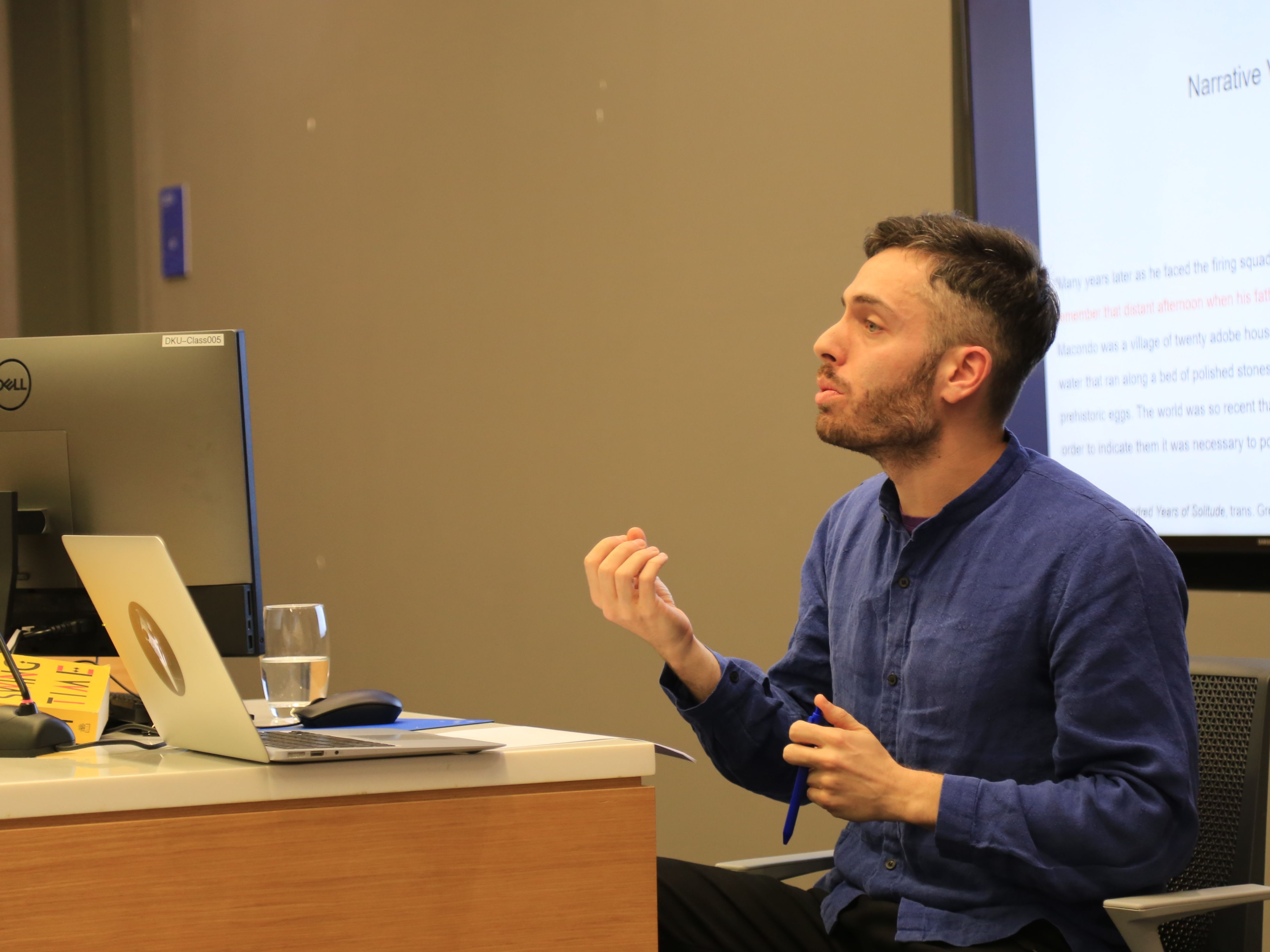23.09.2021
Two Ghost Stories about Anxiety, 2.00 - 4.00 p.m. CEST
By Research Alumnus Dr. Caio Yurgel (Duke Kunshan University)
Speaker
Dr. Caio Yurgel, Assistant Professor of Humanities at Duke Kunshan University, has a background in Literature, Arts, Philosophy, and Creative Writing. His teaching and research are primarily concerned with literatures written in Chinese, French, German, Portuguese, and Spanish, with a focus on comparative and interdisciplinary approaches. He is the author of Landscape’s Revenge: The Ecology of Failure in Robert Walser and Bernardo Carvalho (DeGruyter, 2018), and the collection of essays A Estética do Espetáculo: Cinco Teses em Walter Benjamin (NEA, 2013), winner of the prestigious Mario Pedrosa Award for Essays on Contemporary Art and Culture, awarded by the Brazilian Ministry of Culture. He is also the author of two award-winning novels, Samba Sem Mim (Saraiva, 2014) and As Noites de Hong Kong São Feitas de Neon (Gato Bravo, 2019). Dr. Yurgel has a PhD in Comparative Literature from the Friedrich Schlegel Graduiertenschule at Freie Universität Berlin, Germany, where he also served as a joint-postdoctoral researcher in partnership with the Chinese University of Hong Kong (2017). Before joining DKU, he was a postdoctoral fellow at the Peking University.
Abstract
In 1895, the Spanish painter Modesto Brocos—then a professor at the National School of Fine Arts of Rio de Janeiro—unveiled his acclaimed oil on panel titled “Ham’s Redemption” in allusion to a character in Genesis. Painted at the height of Brazil’s “whitening” policies, the painting aged as poorly as one might suspect—while still remaining very much true to the spirit of the times. Based on Brocos’ painting, I propose here are a meditation on storytelling and on the ever-renewed anxieties produced by colonialism and capitalism—then, as now.
ECTS points for students of the University of Tübingen: By attending the talks held during the summer term and submitting an essay on a chosen topic, students can obtain 1 ECTS point. See Alma.

